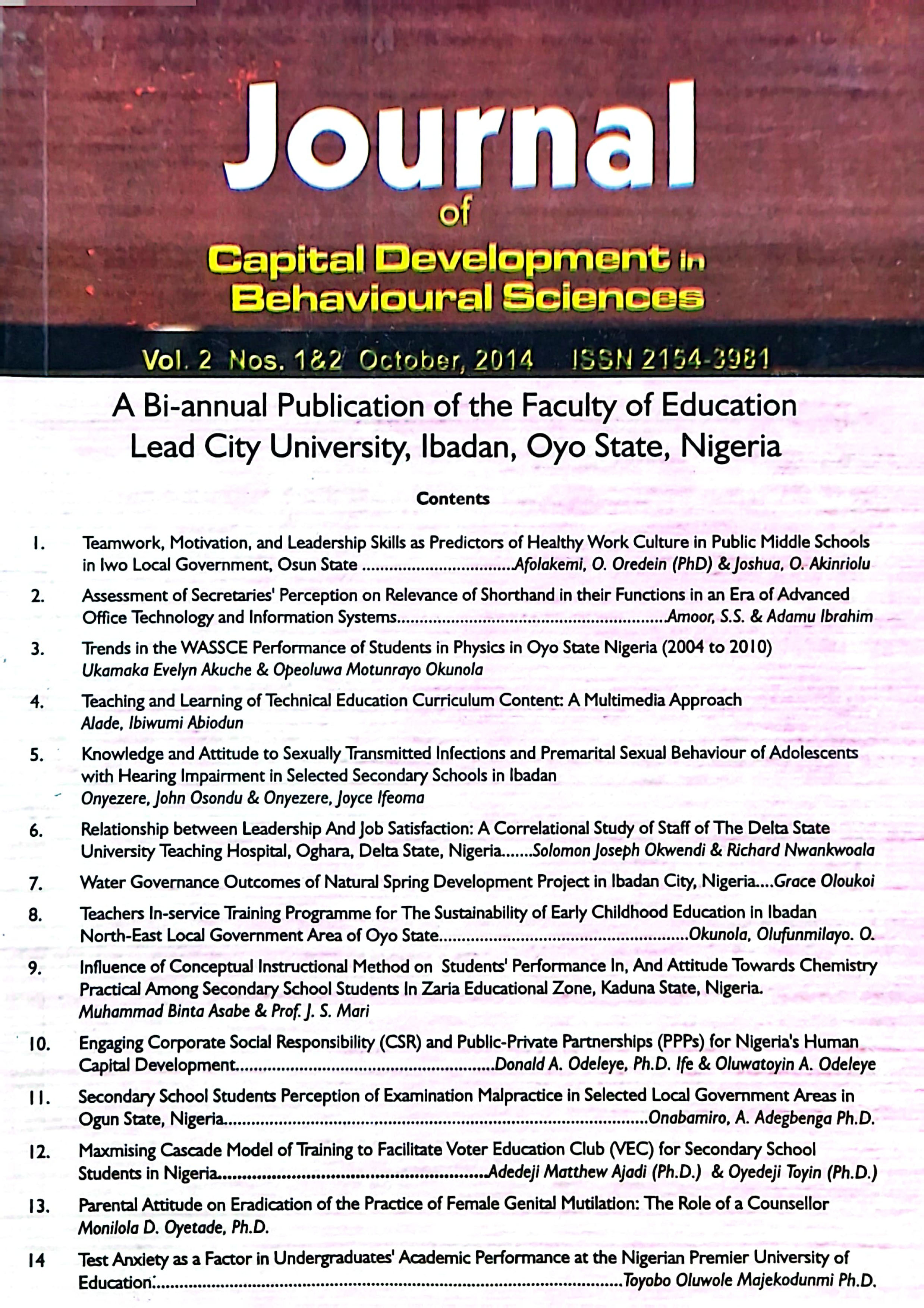Knowledge and Attitude to Sexually Transmitted Infections and Premarital Sexual Behaviour of Adolescents with Hearing Impairment in Selected Secondary Schools in Ibadan
Keywords:
Sexually Transmitted Infections, Premarital Sexual Behaviour, Adolescents, Hearing ImpairmentAbstract
Adolescents in Nigeria are contributing to unfavorable indices of sexual and
reproductive health ranging from sexually transmitted infections, unwanted
pregnancies, and unsafe abortions to maternal mortality. Neglect of this
population has major implications for the future as the sexual and
reproductive behaviour imbibed during adolescence has a way of impacting
upon adult life. This study, therefore, focused on knowledge and attitude to
sexually transmitted infections and premarital sexual behaviour of
adolescents with hearing impairment in selected secondary schools in Ibadan.
Descriptive survey research design was adopted for this study. Sixty
respondents were selected from public secondary schools using purposive
sampling technique. The main instrument used in gathering data was a
self-developed questionnaire on knowledge and attitude to sexually
transmitted infections and premarital sexual behaviour of adolescents with
hearing impairment. Three hypotheses were tested and one research question was answered. The reliability coefficient of r = .82 was obtained
using Pearson Product Moment Correlation Coefficient. Ten trained research
assistants were used during data collection. Data were analyzed using
frequency counts and percentages for the demographic part of the instrument
and the research questions, while t-test was used to test the hypotheses
formulated for the study. The result showed significant difference (Crit-t =
1.96, Cal.t =2.387, df=58, P < .05) on attitude to sex between male and
female adolescents with hearing impairment, while in the other two
hypotheses centering on knowledge of sexually transmitted infections and
premarital sexual behaviour as it has to do with male and female adolescents
with hearing impairment no significant difference was found. On the preferred
source of sex information, the result showed that 25 out of the 60
respondents representing 41.7% picked “Friends” as the preferred source.
In conclusion, it was found that there is a significant difference in the attitude
to sex between male and female adolescents with hearing impairment in
selected secondary schools in Ibadan, while no significant difference was
found between male and female adolescents with hearing impairment in
relation to knowledge of sexually transmitted infections and premarital sexual
behaviour. Therefore, it was recommended that hearing impaired adolescents
should be assisted to have access to correct and adequate SRH information
through the efforts of specialist teachers and counselors.

